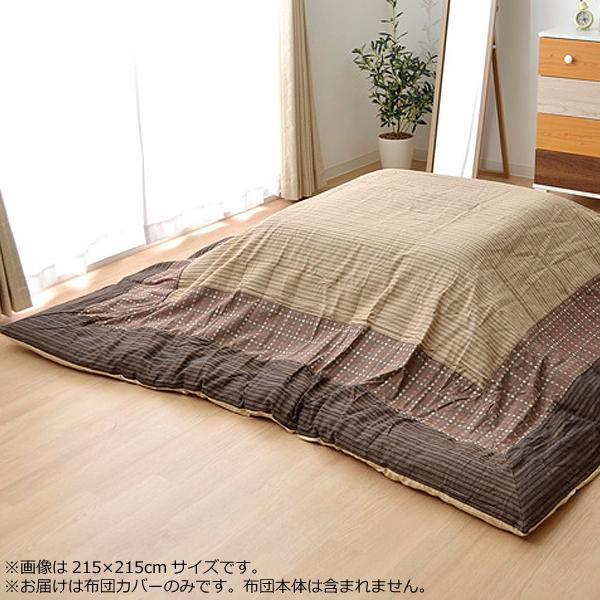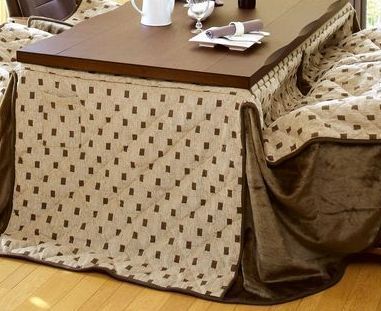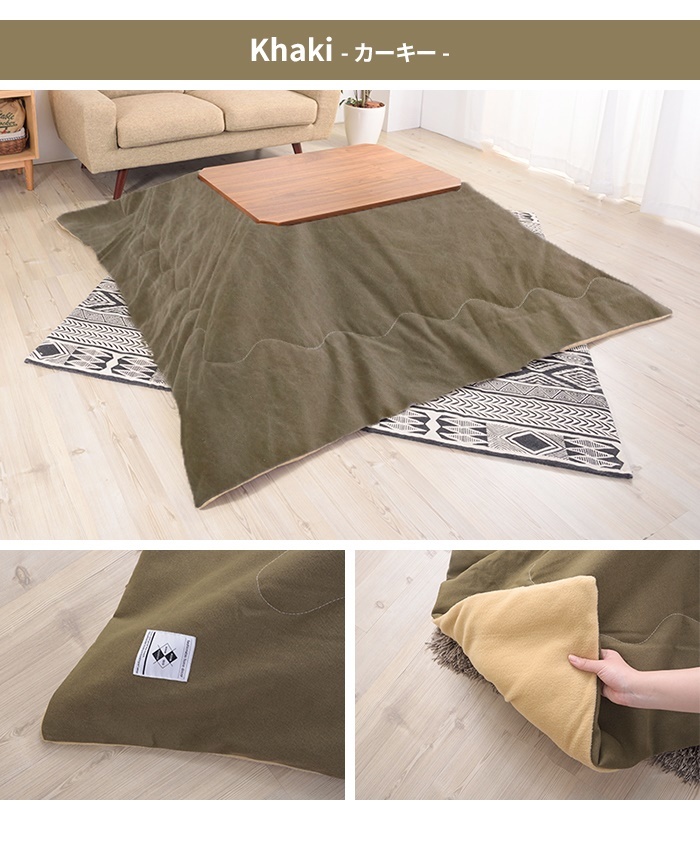商品の詳細
こたつ布団、こたつカバーであったかい冬を!
こたつ布団 長方形 掛け単品 『はなね』 エンジ 約190×240cm
↓ こたつ布団「はなね」はこちら↓
※画像は190×190cmサイズです。●商品名:こたつ布団 長方形 掛け単品 『はなね』 エンジ 約190×240cm●原産地:中国●組成:●洗濯表示:●梱包サイズ:約W44cm×D59cm×H55cm重量:約3.7kg









商品の説明

こたつ布団カバー 『ゆかり』 ベージュ 約215×295cm 5509929 /a

東谷 薄掛けこたつ布団 長方形 迷彩 カモフラージュ アーミー柄 ボア おしゃれ コタツ ふとん KK-148 あずまや メーカー直送 送料無料
![[zebrina]ストライプサテンカバー&防ダニこたつ布団シリーズ 掛布団&敷布団2点セット 6尺長方形 [ミッドナイトブルー]](https://auctions.c.yimg.jp/images.auctions.yahoo.co.jp/image/dr000/auc0409/users/4ce84ecee044855213dbc8ff1b4cb41e3a6f05c1/i-img600x600-1695702969lobrrb475235.jpg)
[zebrina]ストライプサテンカバー&防ダニこたつ布団シリーズ 掛布団&敷布団2点セット 6尺長方形 [ミッドナイトブルー]

こたつ掛け布団 『ムーブ』 グレー 約205×205cm 5994819

スウェード調パッチワークこたつ布団 iconiv イコニヴ こたつ用掛け布団 5尺長方形(90×150cm)天板対応 ネイビー

超撥水加工 こたつ布団 大判長方形 厚手 生地使用 こたつ掛け布団 清潔 安心 日本製 (羽毛布団 掛布団 敷布団 枕)出品中です。グリーン

ダイニングこたつ掛け布団 正方形ダイニングこたつ用 90×90サイズハイタイプこたつ用 カルド90 薄掛布団

こたつ布団 こたつ掛けふとん 正方形 205×205cm しじら織り 和風 ブラウン こたつ掛け布団

薄掛けコタツ布団 正方形 185×185cm コタツ布団 バンダナ柄 こたつ掛け布団 薄手 あったか 冬 節電 おしゃれ 新生活 M5-MGKAM00439

東谷 薄掛けこたつ布団 長方形 千鳥格子風 ベージュ おしゃれ コタツ ふとん KK-128 あずまや メーカー直送 送料無料
最新のクチコミ
迅速な対応でした。コロナ禍で外出できない為ネットでの注文となりましたが、実際よりお安く買えて満足です。
- zxh*****さん
- 63歳
- アトピー
- クチコミ投稿 3件
購入品
生地は薄めです。下着の色が出る。しかし、このお値段でスタイルはかわいいのでとても満足です‼️
- ecz*****さん
- 61歳
- アトピー
- クチコミ投稿 1件
購入品
幼稚園のレッスンバックなど袋物に使用するために購入しました。でもいざ幼稚園準備をしていると、水筒のカバーや幼稚園の黄色いカバンなどにも必要となり、「そういえばこのシールあるじゃん!」となり、貼ってみるといい感じに馴染んで、全部大きめなので名前も見やすくていいです(^^)おすすめ!
- rmj*****さん
- 61歳
- アトピー
- クチコミ投稿 4件
購入品
生後1ヶ月で使用しており、大満足です(^ω^)高さもちょうどよく、授乳後に横向きで寝かせられるため重宝しています。社長さんのメッセージも同封されていて、作り手が子育て目線なこともとても安心できる要素です。これからも赤ちゃんのための良い商品作りよろしくお願いします!
- xpz*****さん
- 55歳
- アトピー
- クチコミ投稿 1件
購入品
以前はテンキー入力を使用していましたが、電池が切れて開かなくなるかと心配していましたが、ダブルキーようにして心配もなくなりました。変えてよかったです。
- sgf*****さん
- 33歳
- アトピー
- クチコミ投稿 5件
購入品
20歳を超えた保護猫。腎臓が悪いが、療養食は全く食べない。痩せてきたのでせめて栄養のあるものをと思い、こちらをチョイス。まだ食は細いが食いつきは、いいほうだと思います。これを食べてふっくらしてくれたら嬉しいな。
- mhl*****さん
- 39歳
- アトピー
- クチコミ投稿 3件
購入品
こたつ・こたつ布団のデイリーランキング
この商品を見ている人におすすめ
-
-

テーラードジャケット
¥18,750
-

メンズマフラー・ストール
¥11,384
-

アイドル
¥26,280
-
その他内装用品
¥26,274
-

Tシャツ/カットソー(半袖/袖なし)
¥12,743
-





